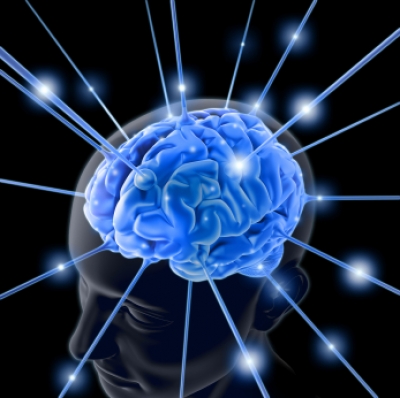Use it or lose it! 32% reduced risk of dementia if you keep your brain very active! 48% greater risk if you do not. Wait! There is more. . .
 A study published in the journal Neurology, described in HealthDay, explains the amazing finding that “one-third of people die in old age with little or no signs of problems with thinking, learning or memory, yet when brain autopsies are done, they actually have clear evidence of Alzheimer’s disease” -Robert S. Wilson, Ph.D., professor, neurological sciences and behavioral sciences, Rush University Medical Center)”They [technically] have the disease, but it’s not expressed clinically.”
A study published in the journal Neurology, described in HealthDay, explains the amazing finding that “one-third of people die in old age with little or no signs of problems with thinking, learning or memory, yet when brain autopsies are done, they actually have clear evidence of Alzheimer’s disease” -Robert S. Wilson, Ph.D., professor, neurological sciences and behavioral sciences, Rush University Medical Center)”They [technically] have the disease, but it’s not expressed clinically.”
 How does doing intellectually challenging activities save your brain function? Professor Wilson explains “The brain tries to constantly adapt to the challenges it’s asked to do. [It] is experience dependent. Activities that are sustained are going to impact its structure and function. And cognitive circuits that are elaborately structured and functioning very well are able to adapt when the inevitable onslaught of aging occurs.”
How does doing intellectually challenging activities save your brain function? Professor Wilson explains “The brain tries to constantly adapt to the challenges it’s asked to do. [It] is experience dependent. Activities that are sustained are going to impact its structure and function. And cognitive circuits that are elaborately structured and functioning very well are able to adapt when the inevitable onslaught of aging occurs.”
So how can we do this? Start quilting, tying flies, going birding. Learn Morse code or Italian! There are thousands of interesting hobbies to develop that engage your brain in learning activities – that include a combination of challenges and the need to focus and concentrate. READ! Read every day. Learn something new every day. Crosswords or Sudoku are okay, but not enough.
And move…daily physical activity is a critical factor as well.
Here’s to saving our brains. Read on. . .

 A study published in the journal Neurology, described in HealthDay, explains the amazing finding that “one-third of people die in old age with little or no signs of problems with thinking, learning or memory, yet when brain autopsies are done, they actually have clear evidence of Alzheimer’s disease” -Robert S. Wilson, Ph.D., professor, neurological sciences and behavioral sciences, Rush University Medical Center)”They [technically] have the disease, but it’s not expressed clinically.”
A study published in the journal Neurology, described in HealthDay, explains the amazing finding that “one-third of people die in old age with little or no signs of problems with thinking, learning or memory, yet when brain autopsies are done, they actually have clear evidence of Alzheimer’s disease” -Robert S. Wilson, Ph.D., professor, neurological sciences and behavioral sciences, Rush University Medical Center)”They [technically] have the disease, but it’s not expressed clinically.”
 How does doing intellectually challenging activities save your brain function? Professor Wilson explains “The brain tries to constantly adapt to the challenges it’s asked to do. [It] is experience dependent. Activities that are sustained are going to impact its structure and function. And cognitive circuits that are elaborately structured and functioning very well are able to adapt when the inevitable onslaught of aging occurs.”
How does doing intellectually challenging activities save your brain function? Professor Wilson explains “The brain tries to constantly adapt to the challenges it’s asked to do. [It] is experience dependent. Activities that are sustained are going to impact its structure and function. And cognitive circuits that are elaborately structured and functioning very well are able to adapt when the inevitable onslaught of aging occurs.”
So how can we do this? Start quilting, tying flies, going birding. Learn Morse code or Italian! There are thousands of interesting hobbies to develop that engage your brain in learning activities – that include a combination of challenges and the need to focus and concentrate. READ! Read every day. Learn something new every day. Crosswords or Sudoku are okay, but not enough.
And move…daily physical activity is a critical factor as well.
Here’s to saving our brains. Read on. . .






Recent Comments